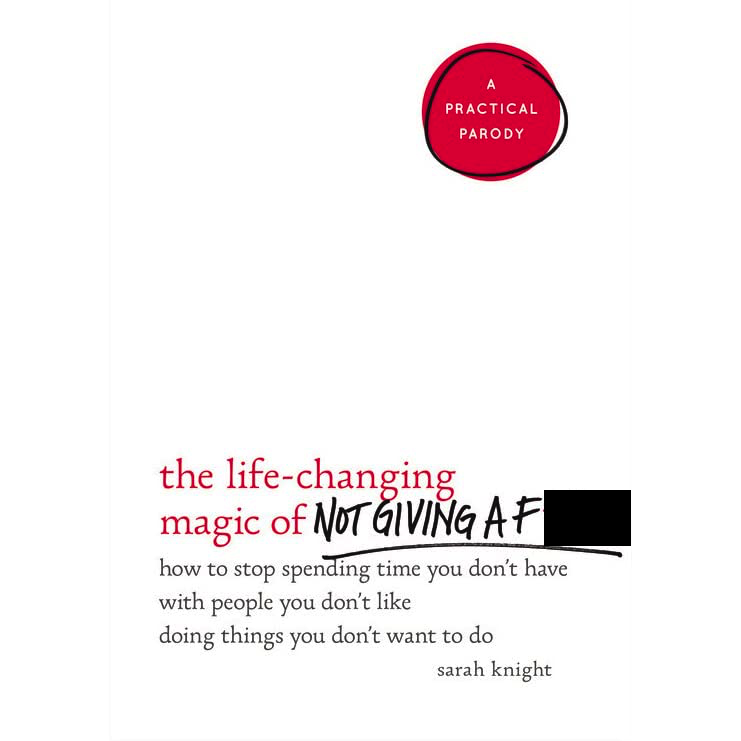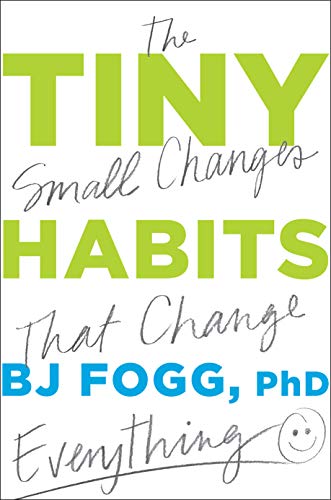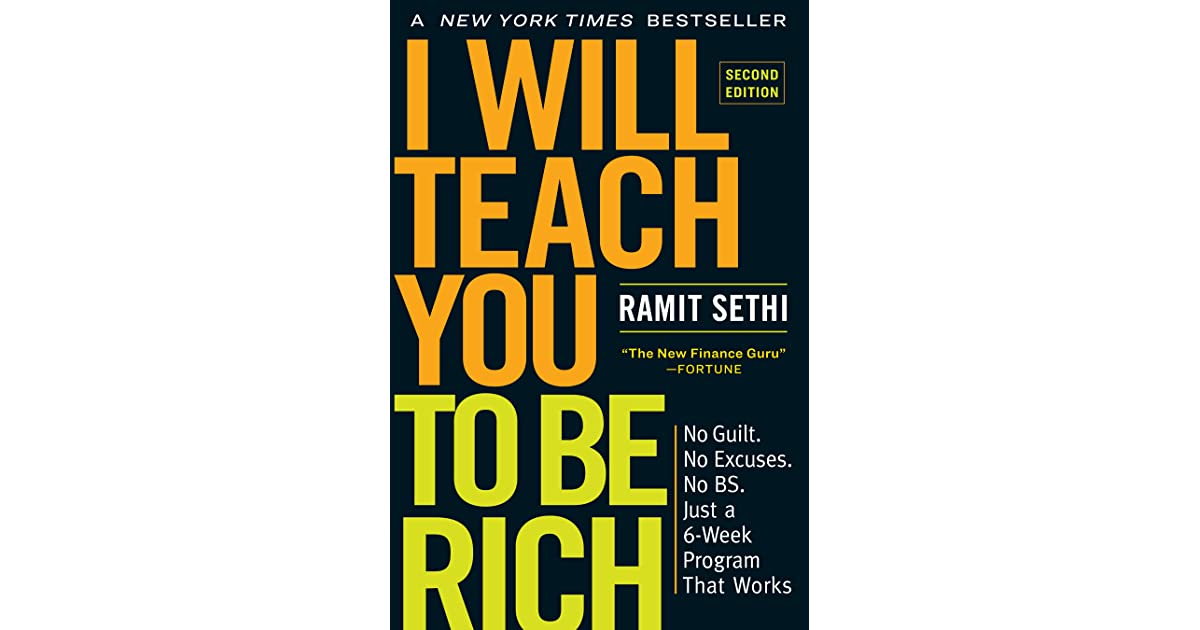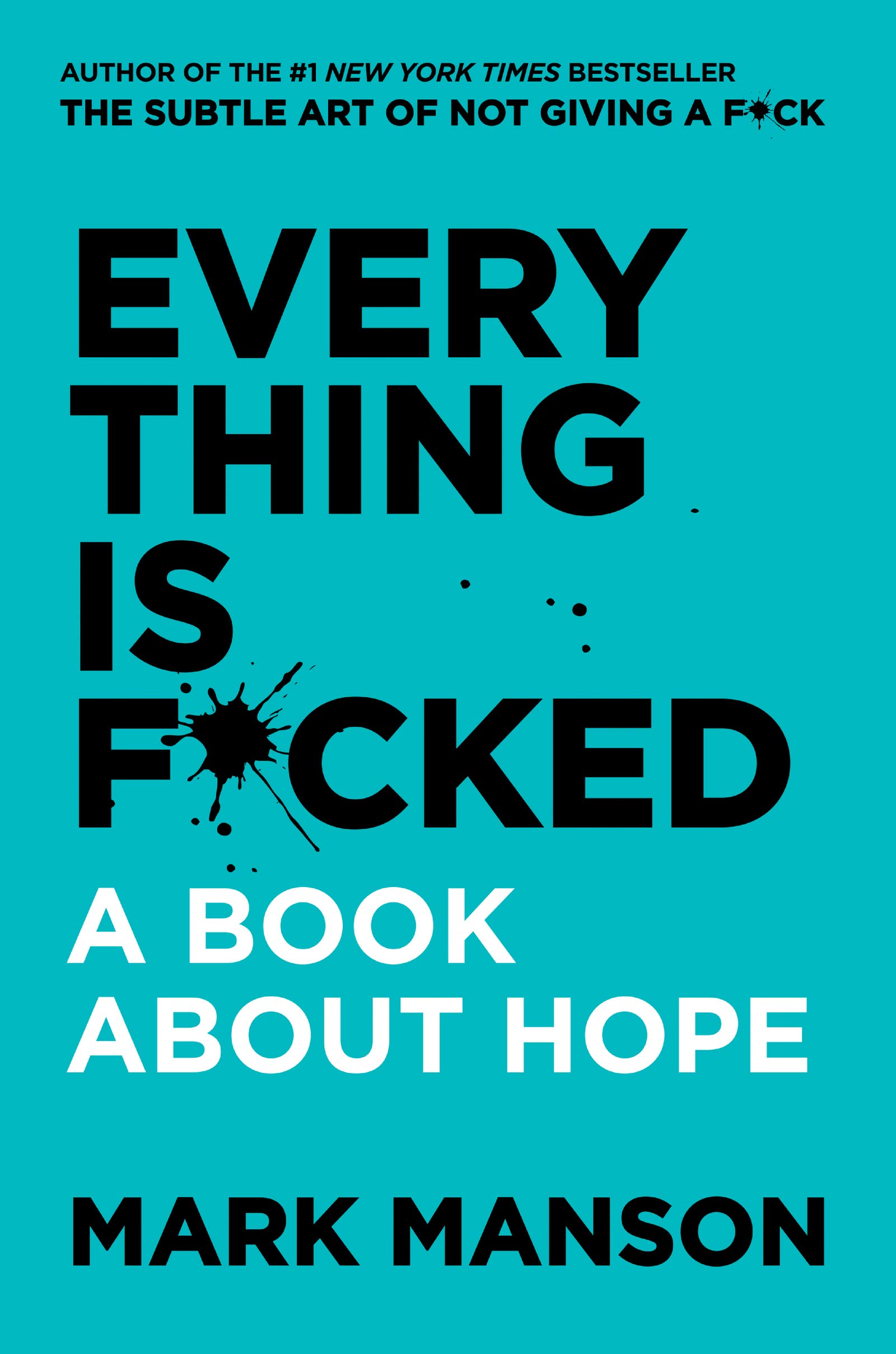I’ll give this to Sarah Knight: she has written one of the jokiest, funniest self-help books out there, and she has a concept that remains relevant and funny throughout.
The concept of her book, The Life-Changing Magic of Not Giving a Fuck is pretty much a to-the-point parody of Marie Kondo’s smash hit “The Life-Changing Magic of Tidying Up”. Her method is called the NotSorry method of decluttering your life of things you don’t actually care about. You can only do this, Knight argues, once you’re able to differentiate between things in your like that “bring joy” and things in your life that “annoy.”
It’s a funny idea, and it carries the book well enough, but I can’t help but feel that it feels a little stretched out. It’s a fun parody of a book that feels like a blog post or perhaps a chapter stretched out into a full book.
A foundational part of the book is in introducing your “fuck budget,” which sounds like something to do with an accountant and prostitution, but it’s pretty far from that (at least for most of us).
Your “fuck budget” is a measure of how many fucks you can give, and where you plan to parse them out. This is interesting in theory, but in practice, an issue arises: unlike a real budget that has finite numbers attached, your fuck budget is ethereal. Your limit is subjective, and it’s hard to know where to draw the line. There isn’t actually a limit to how many fucks you can give, and it’s subjective as to what is and isn’t a fuck.
Do I give one fuck about my niece’s Christening by going? Am I giving two fucks if I invest time, energy and money into organizing a work get together just so that I can exclude fucking Claire in accounting? Or is that 47 fucks?
The fuck budget works as like a fun way to think about only caring about so much, but any kind of practical application is impossible.
This would be fine, except the fuck budget is kind of the basis for the book. Time and again, you’re told to look at and remove fucks from your fuck budget.
These foundational issues mute the impact of the rest of the book a bit. If the fuck budget is vague and hard to decipher, and everything in the book ultimately links back to the fuck budget, it means that with every “give a fuck” decision you make, you’re still ultimately kind of guessing as to whether or not it meets a necessary threshold.
Knight has an interesting and somewhat effective method (again, borrowing for Marie Kondo) in terms of writing out all of the things you currently give a fuck about, and spreading them onto the floor, and making, essentially, piles for what you do and don’t give a fuck about. It is through this process that you can fully and consciously decide, “Nah, I don’t give a fuck about my high school friend’s 4th 39th birthday. I’m going to go home and eat some hummus instead.”
This, again, is better in theory than in practice. In practice, in a set brainstorming session, you won’t remember that you give a fuck about your sister’s feelings enough to attend her baby shower, or that you care what the co-worker with the nice ass thinks of your presentations. Your mind doesn’t can’t cover your entire life in a brainstorming session.
The Theory of a Fuck Budget
So the specifics, while catchy, and solid parody, are weaker, but the general push of the book is a positive one. We shouldn’t care so much about stupid bullshit that doesn’t really matter, and it’s good to lay that out and determine what does and doesn’t matter to you in each area of your life.
It’s good to make emotion-free decisions about what really matters to you in life, and to then act on those to live a life that is lower in stress, more fun, and with fewer monthly lunch dates with people you stopped caring about decades ago.

You need to be able to let go of priorities that totally suck. This book gives you the permission to free yourself of this, and it hammers that into your head again and again, and again.
Knight does go into detail about pretty much every area of life you could possibly give or not give a fuck about–to arguably unnecessary degrees. Knight goes into great detail about how to handle specific things like pre-wedding dinner parties, which isn’t the worst thing in the world, as it gives her wit more room to shine, but as a self-help item, it feels rather unnecessary.
It almost feels at times that she’s writing too much from experience–like she’s about to say, “Here’s what to do when my aunt Jenny wants you to bring a present to her friend’s baby shower.”
Despite the examples being specific, the book still manages to feel kind of repetitive. It’s one example after another of, “You don’t have to give a fuck about your friend’s improv show, and it might be freeing to decide that. But do so in a polite way. Here’s a way to do that politely that’s slightly different from how to politely decline a work lunch, which I covered three paragraphs ago.”
The specific details can be fun and occasionally interesting, but they’re generally so repetitive they mostly feel like padding.
One of the stronger chapters is about the various ways to not give a fuck about family-related things. One one hand, your family matters generally more than anything, but on the other, your family life is a minefield of obligatory, ultimately unnecessary fucks to give.
Family is important, but as the book says, you don’t have to give a fuck about something related to someone just because you’re related to them. You should be there for your sister when she really needs you, but going to her weekly open-mics to hear tell tell jokes about her period is fully up to you.
Incentivize Your Fucks
This brings us to another strong part of the book–incentivizing the fucks you’re forced to give. Yes, sometimes you are indeed forced to give a fuck about some things that you internally truly don’t give a fuck about. I’m not sure I know of a better description for going to a one-year-old family member’s birthday.
Knight encourages you to reward yourself for giving a fuck about these things, which is important if not super profound. If you let yourself go play laser tag only after sitting through your niece’s clarinet recital, then suddenly it’s worth giving a fuck about the recital, and boom: your life just became more functional–and, AND, you get to fucking own some 7-year-olds in laser tag.

Many of the book’s stronger areas come in going into detail about how to not give a fuck in the nicest way possible. The ability to not give a fuck is easy enough–but not giving a fuck gracefully is really where the book shines. My personal favorite section about this details personal policies.
The idea is this: You determine a personal policy about things like other peoples’ kid’s birthday parties, or family outings, or what have you. That way, when someone wants you to care about their kid’s bris, you can be like:
“Oh sorry, I have a personal policy against religious ceremonies” or something to that effect instead of the much harsher,
“Fuck no, I’m not going to your kid’s dick-cutting.”
The book is fun, and it’s snarky, and it does occasionally have unique insight into certain situations, but for the most part, it’s biggest weakness is that it can be summarized pretty thoroughly in a paragraph. What, you don’t believe me? Here I’ll do it right now.
Take time out of your life to figure out everything you’re currently making into a priority–in all areas–family, work, friends, free time, everything. Write it all down, and ask yourself what really matters to you, and do so without emotions. Some things you decide to not give a fuck about will put you at risk of hurting peoples’ feelings, and that would suck. Don’t do that. Instead, find ways to present your not-giving-a-fuck as politely as possible. Pretty much always give a fuck about politeness. Communicate that, then proceed to live a freer, more open life where you give fewer fucks, have less stress, and can care a little more about what really matters to you.
Or, even more succinctly, the book can be summarized with this, “You’re fine, dude. Just let that shit go.”






